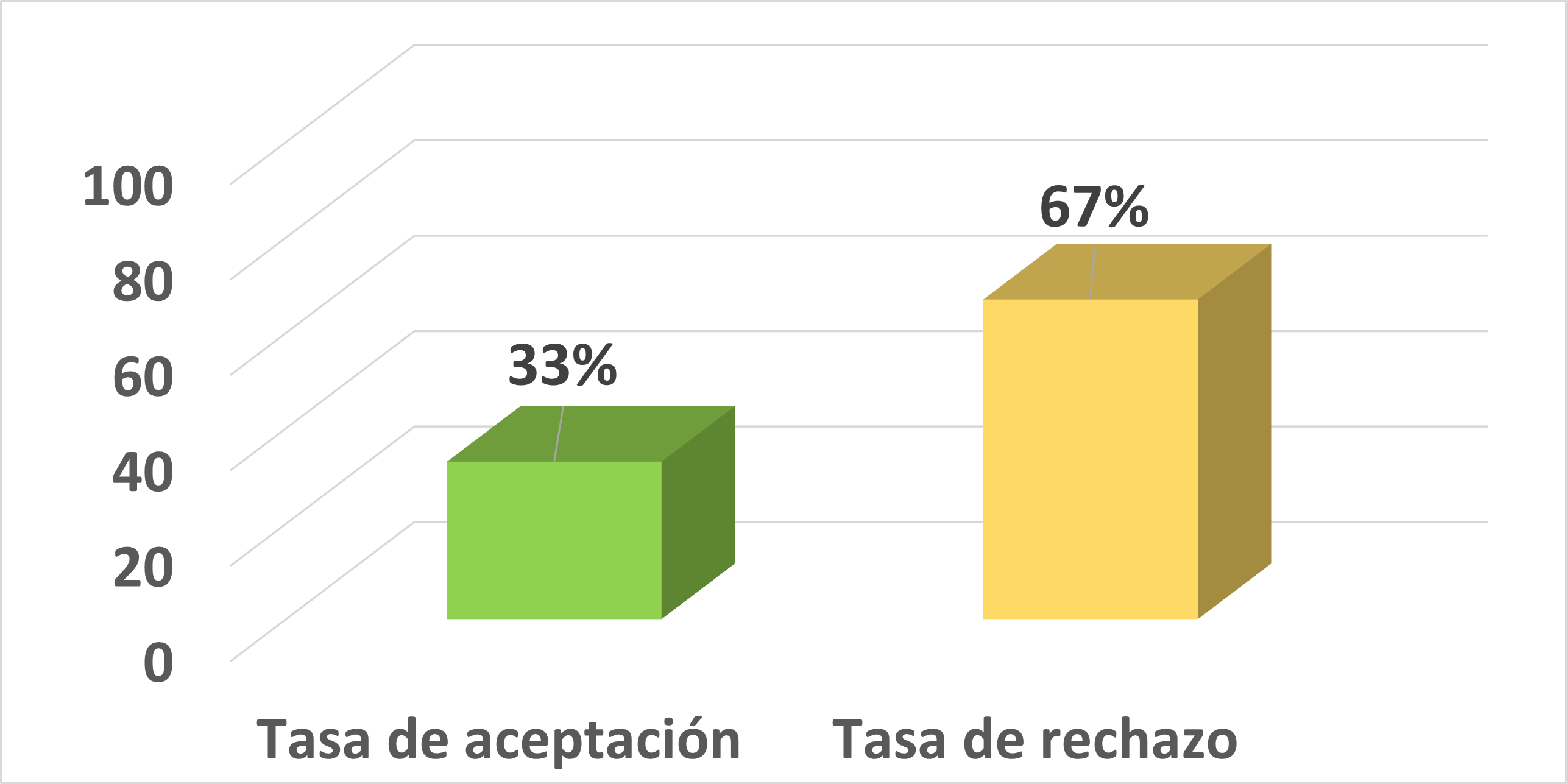Street vending from an holistic view
Keywords:
Epistemological perspective, Social vulnerability, Informal economy, Social contract, Business empiricism.Abstract
An epistemological review of the activity of street vending is presented from the interdisciplinary perspective of Public Administration, Economy, Social Work, Business Adminis- tration and Law to understand the reality that surrounds this activity in the broad context of the implications that are generated from those areas. The discipline of the Public Administration conceives street vending as an activity that takes place outside the social contract. From the perspective of the Economy, they are considered as an option to face the absence of employment or income that derives from the distortions of the current economic system. The discipline of Social Work perceives them as a generating activity of social vulnerability among those who dedicate themselves to it. From the point of view of the Business Administration, this activity is indicated as empirical because it does not adhere to the principles of business administration, however, the instinct and personal experience of the seller replace that lack, sometimes more quickly and flexibly than the company does. And finally, from the point of view of Law, the dichotomy between legality and legitimacy is analyzed when facing the vision of human rights and the current regulations.References
Literatura Citada
Ardila I., O. Hoyos & D. Sabogal (2010). Las prácticas de mercadeo intuitivo en el turismo popular. Perfiles Libertadores 19(33): 131-153.
Arias L.A. (2017). Política Fiscal e Informalidad: una aproximación a los costos y beneficios de ser formal. Pp. 34-50. En: OIT, Sobre Informalidad y Productividad: Breves Reflexiones para el caso del Perú. Lima: OIT-Oficina de la OIT para los Países Andinos.
Bernal Pulido C. (2008). El Derecho de los Derechos. Bogotá: Universidad Externado de Colombia.
Bhowmik S.K. (2005). Street Vendors in Asia. Economic and Political Weekly 40(22-23): 2256-2264.
Bromley R. (2000). Street Vending and Public Policy: A Global Review. International Journal of Sociology and Social Policy 20(1-2): 1-28.
Busso M. (2004). Las estructura sociales de la economía. Buenos Aires: Universidad de Buenos Aires.
Camargo Hernández D. (2005). Actividades económicas informales y tributación. Edición Electrónica por Eumed.net, 75.
Cardenas M. & C. Mejía (2007). Informalidad en Colombia: Nueva Evidencia. Working paper series - Documentos de Trabajo Fedesarrollo(35): 43.
Castellanos T. (2014). Estudio de Monitoreo de la Economía Informal: vendedores y vendedoras ambulantes de Lima Metropolitana, Perú. Manchester: WIEGO.
Castells M. & & A. Portes (1989). World underneath: The origins, dynamics, and effects of the informal economy. Pp. 12. En: Benton (ed.) The informal economy: Studies in Advanced and less developed countries. Johns Hopkins University Press.
Chacaltana J. (2017). ¿Formalización en el Perú? Tendencias recientes e implicancias de política. Pp. 18-33. En: OIT, Sobre Informalidad y Productividad: breves reflexiones para el caso del Perú. Lima: OIT-Oficina de la OIT para los países Andinos.
Cisneros Sosa A. (2013). Agudización de la pobreza en la ciudad de México. El cotidiano 181: 65-72.
DANE (2013). Medición del empleo y seguridad social. Trimestre abril junio 2013, Departamento Administrativo Nacional de Estadísticas, Bogotá D.C.
De Soto H., E. Ghersi & M. Ghibellini (1987). El otro sendero. Lima: Editorial Diana, México.
Donovan M. (2008). Informal Cities and the Constestation of Public Spaces: The Case of Bogotá`s Street Vendors 1988-2003. Urban Studies 45: 29-51.
Erazo V. (2015). El trabajo informal en el medio urbano de Quito; inestabilidad laboral y la reproducción de los vendedores ambulantes. Tesis de Grado. Pontificia Universidad Católica del Ecuador. Quito, Ecuador.
Fernandez-Kelly M.P. (1989). Informalization at the core: Hispanic women, homework, and the advanced capitalist state. Pp. 247-264. En: Benton (ed.) The informal economy: Studies in Advanced and less developed countries. Johns Hopkins University Press.
Franco M. & A. Bernal (2016). Colisión de Principios y Argumentación Judicial: El derecho colectivo al espacio público. Ambiente Jurídico 19: 125-144.
Giraldo C. (2016). Vendedores ambulantes: ¿criminales o trabajadores? Disponible en: http://www.democraciaenlared.com/2016/03/vendedores-ambulantes-criminales-o.html
González J.J. (2001). La administración pública como ciencia: su objeto y su estudio. Plaza y Valdés. México D.F.
Hart K. (2005). Formal bureaucracy and the emergent forms of the informal economy: Research Paper. UNU-WIDER, United Nations University (UNU).
Heintz J. & R. Pollin (2003). Informalization, economic growth and the challenge of creating viable labor standards in developing countries. Working Paper Series 60. Political Economy Research Institute, University of Massachusetts Amherst.
Hunt S. (2009). Citizenship`s place: the State`s Creation of Public Space and Street Vendor`s Culture of Informality in Bogotá, Colombia. Environment and Planning D: Society and Space 27: 331-351.
Itzigsohn J. (2010). Developing poverty: The state, labor market deregulation, and the informal economy in Costa Rica and the Dominican Republic. Penn State Press.
Kus B. (2010). Regulatory governance and the informal economy: cross-national comparisons. Socio-Economic Review: 487-510.
Kus B. (2014). The informal road to markets: neoliberal reforms, private entrepreneurship and the informal economy in Turkey. International Journal of Social Economics 41(4): 278-293.
Kusakabe K. (2006). Policy issues on steet vending: An Overview of studies in Thailand, Cambodia and Mongolia. Bangkok: OIT.
López E. (2011). La pobreza y su relación con la migración como problema social. Revista de Derecho 32(1): 85-117.
López L. & T. Restrepo (2015). Una propuesta de polìtica pública a las problemáticas y necesidades de los venteros informales de la ciudad de Medellín y sus familias. Medellín: Corporación Universitaria Minuto de Dios.
Lustig N. (2002). México: Hacia la reconstrucción de una economía. Fondo de Cultura Económica.
Matta J.P. & M.D. Perelman (2017). La relación lástima-limosna como una variación del intercambio. Pp. 129-148. En: Dapuez & Tola (eds.) El arte de pedir: Antropología de dueños y suplicantes. Villa María, Córdoba, Argentina: Editorial Universitaria Villa María.
Moreno Mata A., C. Beltrán Moncada & L.M. López Mares (2017). La disputa del espacio público en el centro histórico de San Luis Potosí, México. XX Congreso Nacional de Instituciones de la Enseñanza de la Planeación Territorial, le Urbanismo y el Diseño Urbano (ANPUD). Guadalajara, México: ANPUD.
Ochoa D. & A. Ordoñez (2004). Informalidad en Colombia: Causas, efectos y características de la economía del rebusque. Estudios Gerenciales 90: 103-116.
Organizacion Internacional del Trabajo (2013). La medición de la informalidad: manual estadístico sobre el sector informal y el empleo formal Primera Edición. Ed. Turín: Centro Internacional de Formación de la OIT.
Organización Internacional del Trabajo (2015). El entorno normativo y la economía informal. Ginebra: Departamento de Política de Empleo.
ONU (1948). Declaración Universal de los Derechos Humanos. Resolución 217 A (III).
Orsatti A. & R. Calle (2004). La situación de los trabajadores de la economía informal en el Cono Sur y el Área Andina. Organización Internacional del Trabajo.
Perelman M. (2013). Trabajar, pedir, vender. El caso de los vendedores ambulantes en trenes de la Ciudad de Buenos Aires, Argentina. The Journal of Latin American and Caribbean Anthropology 18(2): 231-250.
Perelman M. (2014). Viviendo el trabajo, transformaciones sociales, cirujeo y venta ambulante. Trabajo y Sociedad 23: 45-65.
Portes A. & M.A. Centeno (2006). The informal economy in the shadow of the state. Pp. 23-48. En: Fernández-Kelly & Shefner (eds.) Out of the shadows: Political action and the informal economy in Latin America. Penn State Press.
Ramos de Dios J. (2004). El gato y el ratón. Ambulantes urbanos y poder municipal. Arquitextos. Disponible en: http://vitruvius.com.br/revistas/read/arquitextos/04.046/598
Rodríguez Cabrera Y. (2007). El comercio informal, una afrenta a los poderes establecidos: Vendedores ambulantes en el Centro Histórico de la Ciudad de México. Disponible en: http://www.institut-gouvernance.org/docs/flag_espiral_mx_cuaderno-2-_ficha_005_vdd.pdf
Roever S. (2006). Enforcement and Compliance in Lima`s Street Markets: the origins and consequences of Policy Incoherence Towards Informal Traders.Working paper, United Nations University. Disponible en: https://www.wider.unu.edu/publication/enforcement-and-compliance-limas-street-markets
Saldarriaga Díaz J., C. Vélez-Zapata & G. Betancur Ramírez (2016). Estrategias de mercadeo de los vendedores ambulantes. Semestre Económico 19(39): 155-172.
Sánchez Torres R. (2017). Caracterización e inserción de los vendedores ambulantes de San Victorino en Bogotá. Trabajo y Sociedad 29: 327-351.
Tello M. (2017). Informalidad y Desarrollo Económico. Pp. 62-70. En: OIT, Sobre Informalidad y productividad: breves reflexiones paa el caso del Perú. Lima: Oficina de la OIT para los Países Andinos.
Tockman V. (2001). De la informalidad a la Modernidad. (O. I. Trabajo, Ed.) Boletín Cinterfor 155: 9-32.
Vargas H. (2011). Fundamentos de Mercadeo. Contenido Didáctico del curso Fundamentos de Mercadeo, 236. E. N. (UNAD)
Vega K. (2015). Construcción de la alteridad y el significado de la familia en las ventas ambulantes. Cuadernos de Antropología 23: 25-46.
Downloads
Published
How to Cite
Issue
Section
License
Those authors who have publications with this journal, accept the following terms:
- After the scientific article is accepted for publication, the author agrees to transfer the rights of the first publication to the CEDAMAZ Journal, but the authors retain the copyright. The total or partial reproduction of the published texts is allowed as long as it is not for profit. When the total or partial reproduction of scientific articles accepted and published in the CEDAMAZ Journal is carried out, the complete source and the electronic address of the publication must be cited.
- Scientific articles accepted and published in the CEDAMAZ journal may be deposited by the authors in their entirety in any repository without commercial purposes.
- Authors should not distribute accepted scientific articles that have not yet been officially published by CEDAMAZ. Failure to comply with this rule will result in the rejection of the scientific article.
- The publication of your work will be simultaneously subject to the Attribution-NonCommercial-NoDerivatives 4.0 International (CC BY-NC-ND 4.0)









